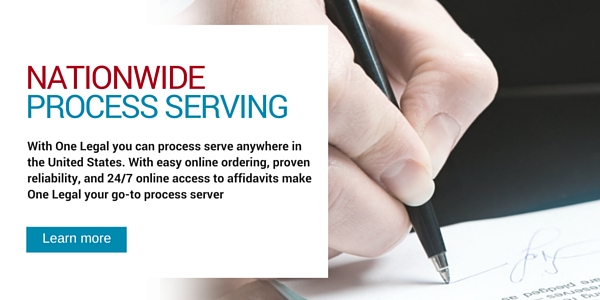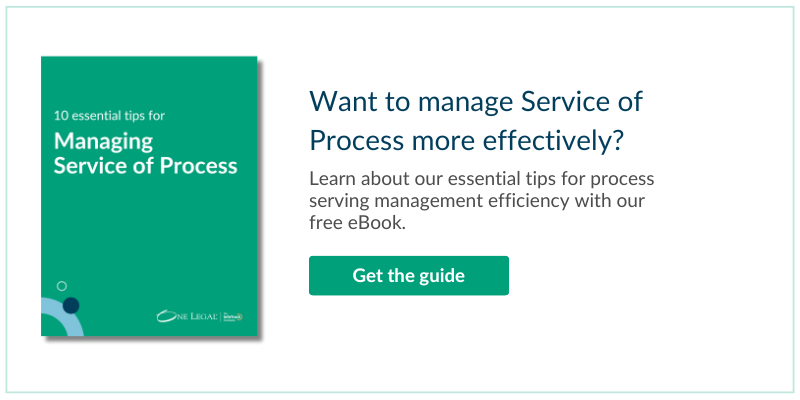At One Legal we’ve long prided ourselves in being among the most successful process servers in the business. Until recently, the California Code of Civil Procedure (CCP) for service inside a gated community contained a rule hindering unannounced access to the party being served.
Service of process and gated communities
This rule (CCP 415.21, if you’re interested) required that, in addition to providing your ID and a valid Process Server Registration, servers had to identify the person(s) being served to the guard at a gated community. Some guards also insisted on being told the exact address to be served – something not required in the code.
The consequence would typically be that the guard either tipped off the person being served by calling ahead or insisted on accompanying the server to the residence. In both cases, the result was often that the intended servee was able to evade being served.
Why the 2015 rule change means faster service of process
Fortunately, since January 1st this year new rules have been in effect and we’re pleased to say that the change has made a huge difference.
The new code no longer contains the requirement that the server provide the identity of the person(s) to be served and there remains no requirement to provide an address. The code therefore effectively gives servers “unannounced access” into the gated community.
All of our servers have been working according to the new code since the New Year and have been advised to carry copies of the revised code to share with any skeptical gatekeepers. Gaining unannounced access clearly provides for a much greater opportunity to effectuate service on your behalf.
Because we provide service of process in all 50 states and the District of Columbia we take great care to stay on top of all of the various rule changes that might help us to deliver your documents faster. It’s just one reason why we’re industry leaders in process service with an enviable success rate. Find out more about process serving with One Legal.









